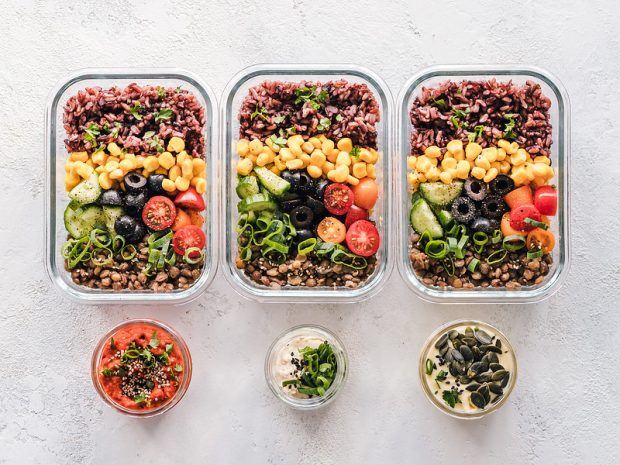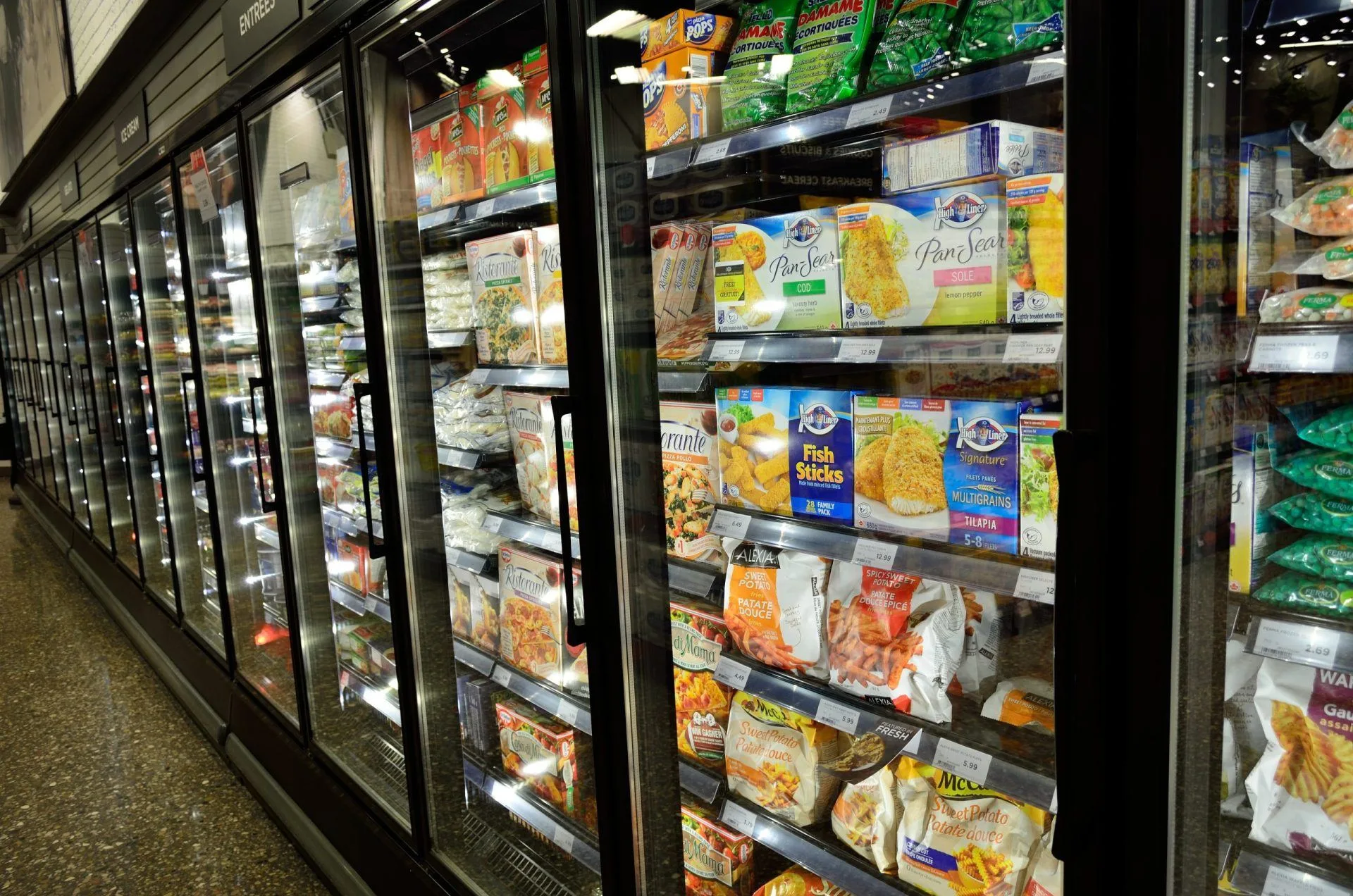We live in an extremely fast-paced world, where not everyone has time to cook meals every single night. This has led to the rise of fast food delivery services, making accessing takeout food convenient. However, our wallets and health end up paying the price. So, what’s the solution? Well, a convenient way of having cooked meals on the go is by purchasing frozen ready-made meals. While we cannot deny how convenient they are, we can’t help but wonder; just how healthy are these frozen meals?
The Impact of Freezing Food
The freezing process in ready-made meals tends to degrade the taste of the food. In order to compensate for this flavor degradation, the meals are processed with extra salt and fat to add flavor. Foods high in salt can be dangerous to your health in various ways, including:
High Blood Pressure
According to studies, frozen meals have been shown to elevate blood pressure due to their high salt content. Hypertension can stiffen and narrow the blood vessels, which decreases blood and oxygen flow to key organs. This leads to the heart trying to pump blood throughout the body, further increasing blood pressure.
Cardiologist Luke Laffin, M.D., says “elevated blood pressure, particularly over a long period of time, puts an incredible strain on the heart.” Unchecked hypertension can also damage the artery walls, which begin to collect fat, leading to heart disease and potential heart attack or stroke.
Other health risks of eating foods that are high in salt include:
- Calcium loss, which affects bone health
- Swollen feet or hands
- Increased thirst
- Headaches
Increased Risk of Heart Disease
Nutritionist Manisha Chopra says, “frozen food items contain trans fats that increase (your) risk of getting heart disease.”
According to the World Health Organization, a high trans fat intake increases the risk of coronary heart disease death by 28%, and coronary heart disease by 21%. This is due to it raising LDL (bad) cholesterol levels. This bad cholesterol not only clogs, but also hardens arteries, leading to a higher risk of blood clotting, heart attacks, strokes, and Type 2 Diabetes.
Elevated Blood Sugar Levels
While starch is mainly used to keep frozen meals fresh, it also adds taste and texture to the food, which tends to be unpleasant upon defrosting. The starch gets converted into sugar before the digestion process begins, and this can lead to an elevation in sugar levels.
This excessive intake of sugar leads to increased fat storage in the body, typically inside the liver and around internal organs. This leads to the body resisting insulin actions, required to move sugar out of the blood. This is directly linked to Hyperglycemia.
Hyperglycemia
This condition occurs when there is too much sugar in your blood. Having too much sugar in the blood for long periods of time can cause serious health problems if not treated. This leads to an increase in the risk of heart disease, stroke, kidney disease, and nerve problems. While it has been shown to mostly affect people with diabetes, it can occasionally affect those who don’t have diabetes.
Why You Should Opt For Meal Prep
Meal prep has taken the world by storm, with this convenient way of having a home-cooked meal every night growing in popularity. Here are a few benefits of meal prep.
Improved Food Quality
The amazing thing about preparing your own food is knowing exactly what’s going into it. Meal prep allows you to consciously add healthier meals to your diet to suit your individual health needs.
You might require more vitamin C during the flu season, which can be found in broccoli, peppers, and even potatoes. Or, you might need some fiber (found in beans, peas, and other legumes) to aid your digestive system. Either way, you’ll be able to obtain these nutrients in a healthy, natural way.
Limiting Added Sugars
A lot of “healthy” foods are a source of too many added sugars, so preparing your own meals allows you to be aware of just how much sugar they contain.

Photo by Ella Olsson/Flickr
A prime example of this is granola. Store-bought granola is high in fats, sugar, and calories which can be equivalent to a candy bar, while homemade granola can be a source of fiber, healthy fats, protein, and limited sugar, depending on the ingredients you use.
Allows You To Master Portion Control
From being in control of what you eat to being in control of the amount you eat, meal prep helps you ensure that you eat within your desired threshold.
Since you have control of the ingredients and cooking methods used in your meals, you are able to portion your meals according to your personal nutritional needs. This can be beneficial for those who are watching their calorie intake or wish to lose weight.
You Save Money
Meal prep forces you to be intentional about your food choices, which helps you stay conscious of what you’re spending your money on.
According to dietician Brittany Modell, R.D., “having a plan allows you to figure out exactly what ingredients you will need for the week.” Mia Syn, R.D., further adds that “purchasing just what you need can help prevent food waste and ultimately save you money from random purchases that may otherwise go uneaten.”
Meal Prep: A Healthier Option For You and Your Wallet
Impulsive food choices are a reality, especially when you’re overly hungry and strapped for time. Meal Prep allows you to have balanced meals, all while leaving room for flexibility by adding variations to your weekly meals. Science seems to agree with this too, with a study finding that people who use food planning strategies (e.g Meal prep) had overall healthier diets, which are directly linked to living a healthier, longer life.
The benefits of meal prep go beyond your plate, with positive impacts on your life and financial well-being. So instead of ordering takeout or purchasing those store-bought frozen ready-made meals, prioritize planning and implementing meal prep into your life.
MAIN IMAGE CREDIT: Photo by form PxHere
References
- The Rapid Evolution of the Food Industry: Mckinsey. https://www.mckinsey.com/industries/technology-media-and-telecommunications/our-insights/ordering-in-the-rapid-evolution-of-food-delivery
- Dottori, I., Urbani, S., Sordini, B., Servili, M., Selvaggini, R., Veneziani, G., Ranucci, D., Taticchi, A. and Esposto, S., 2023. Frozen Ready-to-(h) eat Meals: Evolution of Their Quality during a Real-Time Short Shelf Life. Foods, 12(5), p.1087.
- Aceves-Martins, M., Denton, P. and de Roos, B., 2023. Ready meals, especially those that are animal-based and cooked in an oven, have lower nutritional quality and higher greenhouse gas emissions and are more expensive than equivalent home-cooked meals. Public Health Nutrition, pp.1-9.



![women [longevity live]](https://longevitylive.com/wp-content/uploads/2020/01/photo-of-women-walking-down-the-street-1116984-100x100.jpg)










